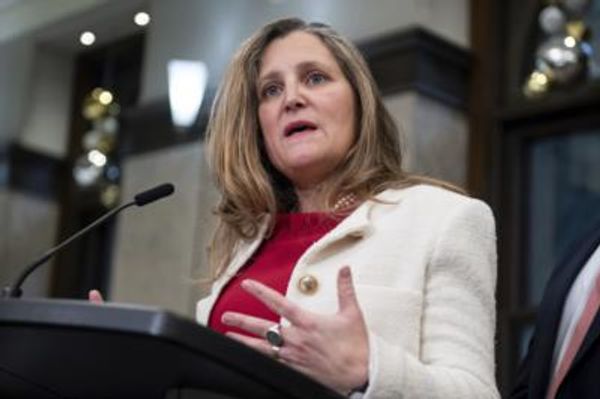Airline stocks came under pressure early Thursday as United Airlines took a hard dive and American Airlines traded moderately lower. Both reported second-quarter earnings below expectations. Results signaled, however, confidence that travel demand could withstand an economic slowdown in the months ahead.
United carrier reported results late Wednesday, American Thursday morning, as the airline industry tries to manage rebounding travel, a torrent of staffing issues and concerns about rising fare prices, a spike in oil costs and a downturn. United CEO Scott Kirby warned that risks of a recession, swelling fuel costs and the operational snags "could grow over the next 6-18 months." And United projected a jump in costs for the third quarter and the rest of the year.
Both reports also follow earnings last week from Delta Air Lines, which said travel demand was still holding up, even as the carrier keeps a lid on adding new flights to shore up service.
United Airlines Earnings
United earned $1 per share, below estimates for $1.85 per share. The quarter was the first non-GAAP per-share profit for the company since the pandemic began.
Revenue of $12.112 billion missed expectations for $12.123 billion.
Total unit revenue climbed 24% when compared to pre-pandemic levels in 2019. United said it expected that key metric — which tallies sales as spread across available seats and flights — to improve in the third quarter over 2019.
"Second quarter revenue improved at a rapid pace and while the company anticipates the economy will slow in the near to medium term, the continuing pandemic recovery is more than offsetting economic headwinds — leading to expected revenue and earnings acceleration in the third quarter," United said in a statement.
"As a result, the company continues to expect to be profitable for the full year 2022," the company continued.
United's Outlook: Cost Increases, Capacity Declines
Still, the airline said it expected a 16% to 17% jump in adjusted unit costs, excluding fuel, for the third quarter when compared to 2019. Those costs are expected to be up roughly 16% for the year. The carrier forecast a third-quarter adjusted operating margin of around 10%.
And it said it expected full-year flight capacity — a measure of the size of an airline's network of available flights — to be down around 13% this year, when compared to 2019 levels, and up "no more than" roughly 8% next year compared to 2019.
Airlines have trimmed their flight schedules in an effort to ensure they're sufficiently staffed. But a smaller flight network pushes costs, per available seat flown one mile, upward, as there are fewer open seats on flights over which to spread those costs.
United said it expected third-quarter flight capacity to drop 11% compared to 2019, and 10% in the fourth quarter. United forecast a third-quarter operating revenue increase of around 11% over 2019. Wall Street expected a 10% gain.
United will hold its earnings conference call with airline stocks analysts on Thursday.
IBD Stock Of The Day XBI: How To Trade Blazing-Hot Biotech Stocks Without Getting Burned
United Airlines stock traded down 6.5% in premarket action on the stock market today. Among other airline stocks, American Airlines dipped 2%. Delta lost 3%. Southwest slipped 1.2%.
Airline stocks mostly rose on during the regular trading session on Wednesday.
The results from United and American come as airlines raise ticket prices — a reflection of strong demand from passengers willing to pay up, after two years of putting off travel, and rising fuel prices resulting from Russia's war in Ukraine. United said it expected fuel costs to reach $3.81 per gallon in the third quarter, down from $4.18 in the second quarter.
Airline Stocks, Staffing Issues
As demand evaporated in 2020, airlines encouraged employees to leave in an effort to control costs and cash-burn. But they now find themselves short-staffed — particularly among pilots — and trying to hire as workers demand more from their employers. Thousands of flights have been canceled or delayed, amid staffing troubles and severe weather, leaving an uncertain environment for companies and for investors in airline stocks.
Delta CEO Ed Bastian, during Delta's earnings call, said the airline was dealing with a "training and experience bubble," rather than trouble hiring. The carrier also said service was improving. It said it had only canceled 25 flights, out of more than 30,000 around the globe, during the first seven days of this month.
How To Know It's Time To Sell Your Favorite Stock
Still, airline stock investors will be on the lookout for carriers' plans to minimize the damage.
"We look forward to learning how the different carriers plan on approaching capacity through 2H22 as well as any insights they have on the state of the consumer, risks of any demand destruction due to high ticket prices, and the recovery in international and business travel," Cowen analyst Helane Becker said in a research note on Monday.
"Management teams will also likely be questioned on the characteristics of their booking curves and how they are handling operational issues due to factors such as employee training backlogs and airport staff shortages," she continued. "We expect American will likely face questions on their outlook for paying down debt."
American Airlines Earnings, Airline Stocks
Estimates: Wall Street expected American Airlines to earn 77 cents per share, up from a loss from a year ago. Similar to United, that would be American's first per-share profit during the pandemic. Analysts expected revenue to jump 78% to $13.331 billion.
Actual EPS came in at 68 cents. Second-quarter revenue was $13.4 billion.
In the first quarter, American had long-term debt and finance leases of around $35 billion during the first quarter. The company has said it wants to pay down around $15 billion in debt by the end of 2025.
Like most airline stocks, American and United are trading lower so far for the year. American shares have fallen 17.5% since Dec. 31. United is down 4.5%.







